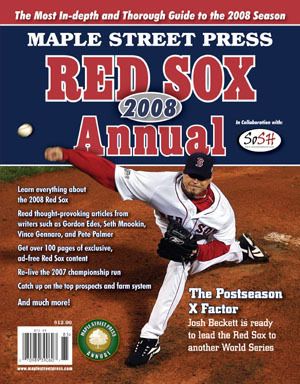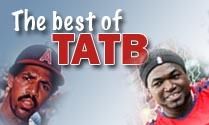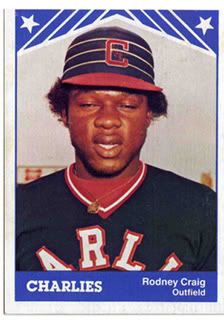The end of the Idiots

After the eulogies have been spoken and the obituaries written, after every significant moment in between Edgar Renteria's mismatched pair of season-ending groundouts has been rehashed and reconsidered, after all the fingers have been pointed and the culprits identified, after the superior White Sox celebrated on our sod and the last hair leapt to its death off Terry Francona's weary head, we are left to accept a simple fact, one the clear-eyed realists among us suspected all along:
The 2005 Boston Red Sox weren't good enough.
It's rarely that simple around here, in this ear-splitting age of sports-radio yelping and uninformed so-called analysts, but this season needs no autopsy to reveal the cause of death. The champs never had the proper ingredients - talent, luck, depth, an ace, a non-flammable bullpen - to cook up another championship again. It was painfully apparent at the end, when the White Sox whupped 'em in three straight, doing all the little things (and the big things) Our Sox did last season, not to mention shaming anyone so arrogant to assume Boston would win the series based solely on the smugly conceived, vague reasoning that they had "playoff experience." The White Sox hit better than Boston, fielded better than Boston, and their pitching was so superior that El Duque, the last man to make the roster, likely would have come into this postseason as Boston's ace should they have been so fortunate to have him. The better team won. As it should be.
If this team's demise caught anyone by surprise, they either weren't paying attention or are as stone-skulled oblivious as Jerry Trupiano. Considering that the closer (Keith Foulke) endured a personal and professional meltdown and the ace (Curt Schilling) suffered the consequences of his Bloody Sock Heroics and won only eight games . . . considering that a rotation of No. 3 starters couldn't fill the void after Pedro chased the Mets' dinero and Edgar Renteria arrived as Offerman 2K5 . . . considering that Bill Mueller got slower as the season grew longer and Trot Nixon crumbled physically once again . . . considering that the bullpen was doused in gasoline and Kevin Millar should have been, well, hell, I'm still trying to figure out how they won 95 games.
Best I can surmise, it's due mostly to Manny Ramirez and David Ortiz doing their uncanny Ruth/Gehrig routine in the 3-4 spots, with honorable mention going to Mike Timlin (did he pitch every day?), Jason Varitek (a fast fade at the end, but a typically rock-steady year on the whole), and, I suppose, Francona (the man's loyalty is maddening, but he did an able job considering the season-long shakiness of the pitching staff).
As valiant as many of the individuals were, though, the team did not deserve to play on, and as the leaves pile up in the yard and the crisp air resigns us to the reality that summer is but a warm memory, we are left longing for just one more game, one more inning, one more pitch. Last year excepted, the end of a Red Sox season always sinks my spirits, leaves me with a strange melancholy that strikes occasionally and often randomly, such as when the radio dial rests on the last few beautiful moments of "Layla" (the original, obviously, not Clapton's inexplicable pandering to the Easy Listening nitwits), or the terribly tragic scene in "Dazed and Confused" when (sob!) the kegs run dry.
Even though the ending to this movie was foreshadowed long ago, this year I'm finding it even harder to let go, for one reason above all others: We have arrived at the end of something bigger, something unique and transcendent and unrivaled in the modern history of Boston baseball.
This is the end of the Idiots.
The last three seasons have almost felt like one long continuous season, different acts in the same play. Call it the Idiot Trilogy, if you will. It began in the offseason prior to 2003, when Theo Epstein acquired a locker room full of supposed role players to add to his Manny/Pedro/Damon/Varitek core: Mike Timlin, Kevin Millar, Bill Mueller, Todd Walker (who begat Mark Bellhorn), and a happy-go-lucky, but underachieving slugger discarded by the Minnesota Twins. I've said it before, and I'll say it again: the day the Red Sox signed David Ortiz was the most important day in franchise history. He has meant that much to the Red Sox, and that's not diminish the contributions of the others who came here along with him in that crucial winter of '02-'03. Dan Duquette, being an android and all, never realized that personality mattered, but Theo did immediately. He understood that it's of utmost importance to find players who can cope with the daily media crush and the intentions of well-meaning but sometimes suffocating fans, to find players who not only can handle the pressure of playing in Boston but embrace it. For those who still recall the sickening Everett/Lansing/Kerrigan 2001 Sox all too well, it was refreshing to see the young general manager put a premium on character and chemistry as well as talent.
And it surely didn't hurt that his philosophy proved successful immediately. The Sox won 95 games but lost in soul-crushing fashion in Game 7 of the ALCS in '03, then, a year later, came back against the same rival that stole their dreams the previous season and merely pulled off the greatest comeback in the history of professional team sports. Vindication never tasted so sweet, and as the Sox celebrated in the Bronx, then, four victories later in St. Louis, you found yourself wishing this special collection of players and people could stay together forever.
They will, of course - in our DVD players, on those framed newspapers on the wall, in our memories. But the reality of pro sports is that very few stay in one place anymore, and the departures began only weeks after the champagne flowed. Pedro, who said in the World Series DVD that he'd rather win one ring in Boston than three anywhere else, apparently decided he had a good shot at four or more rings in New York, and signed with the Mets. Other names on the roster changed, too - the steady and spectacular Orlando Cabrera was an all-too-brief flash across our sky - but the core heading into '05 remained much the same.
That will not be the case next year. The Red Sox are team in transition; they've aged before our eyes, their roster is dotted with question marks, and the contracts of four of their everyday players have expired. Leadoff hitter/center fielder Johnny Damon, the epitome of the Idiot mentality in that he relishes the impression he plays as hard off the field as he does on it, is the marquee free agent and seems to be intent on cashing in every last Benjamin; he's setting himself up to be the Yankees' 2009 equivalent of Bernie Williams, 2005. You hate to see him go - he's a pleasant guy and a wonderfully original player (rugged dude, wimpy swing, slick glove, peashooter arm) who thrives in the biggest moments - but his body already seems to be betraying him. Should he go, we'll simply tip our cap and say thanks for the memories, man. Unless he goes to the Bronx. Then we'll pelt him with batteries. (Just the little ones, though. No DieHards. Stay classy, Boston.)
Others are certainly on the way out. Millar will, if there is any justice, be a platoon DH for the Nippon Ham Fighters next season. (You know he'll learn to say "Cowboy Up" in Japanese.) Mueller, whose contract also is up, is welcome to stay, though that's the sentimental fool speaking; it's probably 26-year-old Kevin Youkilis's time to show what he can do third base, and frankly, it was Francona's failing that he didn't use him to rest creaky-kneed Billy Ballgame more this season. Timlin is a free agent, though he's already talking about coming back, and we'd all like to see Tony Graffanino return, for his steadiness as well as a deserved shot at redemption.
Then there's Manny. Despite carrying the Sox with a sweet September, despite homering twice in the final, futile attempt to stave off Chicago, despite his consistent Hall of Fame-level production and a contract that he damn near justifies, I suspect the Sox will finally succeed in their annual disingenuous attempt to unload him. And that, to paraphrase Rick Pitino, will stink and suck and stink. I hope Papi gets a nice, shiny plaque or something for leading the league in intentional walks next season, though I hold out a shred of hope that the Sox will come to their senses and realize that fair payment for Manny is one of these names and nothing else: Albert Pujols. Mark Teixeira. Miguel Cabrera. I could be forgetting someone, but I think that's it. Weird that their teams would consider them untouchable, huh? Vlad Guerrero? Maybe, though it seems to me he's Manny with a better arm and half the charm. Carlos Beltran? He's a rare talent, but the Sox would be wise to pass. Those who want him don't know him, and they won't like him when they do. You might notice that Mike Cameron and Aubrey Huff didn't make the cut. If Manny goes for 75 cents on the dollar, he'll be taking 45 homers, 144 RBIs, a piece of Big Papi's mojo, and the Red Sox's chances of making four postseason appearances in a row with him. But, you know, at least they'll be rid of that contract.
Yet as crucial as Manny is, and to a lesser extent Damon, the most important personnel decision concerns the man who will decide their futures. Theo Epstein's contract is up on Oct. 31, and we cannot make this point clearly enough: If the Red Sox let him leave, it will the most unforgivable personnel blunder since the Babe . . . well, you know. Maybe this wasn't Theo's finest season of his three as general manager - Renteria was a disappointment, he should have known that Matt Clement (whom I'd trade for Carl Pavano in a New York minute) does not have the temperament to thrive here, and he never adequately patched the bullpen despite taking a flyer on every mediocre Tom, Dick and Chad he could find. But he also had a damn near impossible act to follow - the epic, crucial Nomar-for-Cabrera/Mientkiewicz deal proved he is beyond fearless and was a catalyst for the championship run - and for those who say he doesn't deserve anything close to what the Sox offered Billy Beane four years ago, we'll counter with this: In Theo's three years on the job, the Sox have made the playoffs three times, getting out of the first round twice and winning the World Series once. The A's next playoff-series victory under Beane will be their first. No, Beane doesn't have equal resources. He doesn't have an equal resume, either.
You know it, so do I, and cross your fingers that John Henry gets it too: Theo is the absolute ideal general manager for the Red Sox, the perfect person at the perfect time. In times of tumult - and you know that there inevitably are plenty on Yawkey Way - he is an articulate voice of clarity and reason, radiating calm and never failing to say the right thing. In times when a crucial personnel decision must be made, he solicits and considers the opinions of the old-school scouts and the Baseball Prospectus numbers-crunchers, then makes his own reasoned call. And best of all, he's one us. He understands. If he leaves . . .
(I hate even writing those words.)
. . . good god, if he leaves, I'll have no choice to believe it's because his former mentor is envious that his protege has surpassed him, if not in the boardroom then certainly in the eyes of the public, and that the only solution to that is to puncture his pride with a lowball offer, just to remind him who's the boss. Yes, I'll have to wonder if in Larry Lucchino's eyes, Theo will always be the eager intern from Yale, the underling who has no business ever usurping his power. Yes, I'll have to wonder.
Theo put the guts of this ballclub together, and it rewarded us three of the most enjoyable seasons of our lifetime. Should he depart along with so many of his players, then the truth will haunt us through the long winter and beyond: All along, we had the wrong men pegged as idiots.













|
<< Home